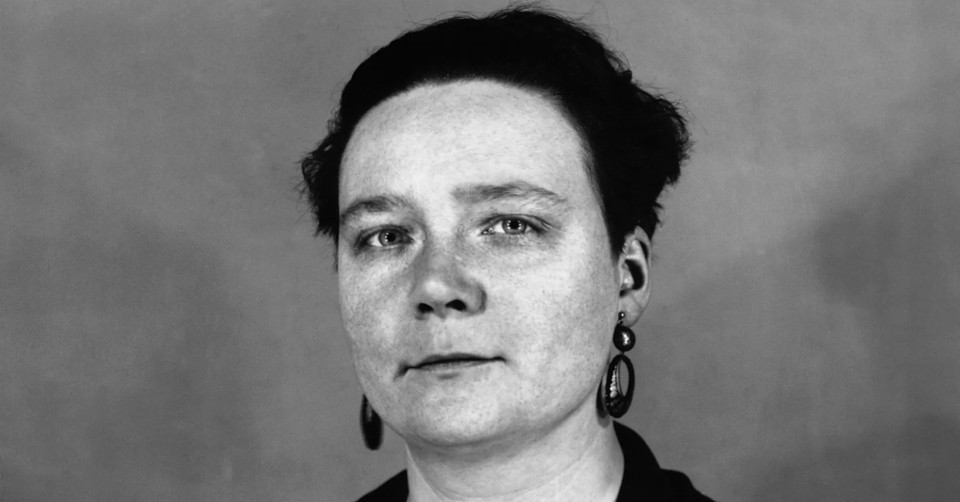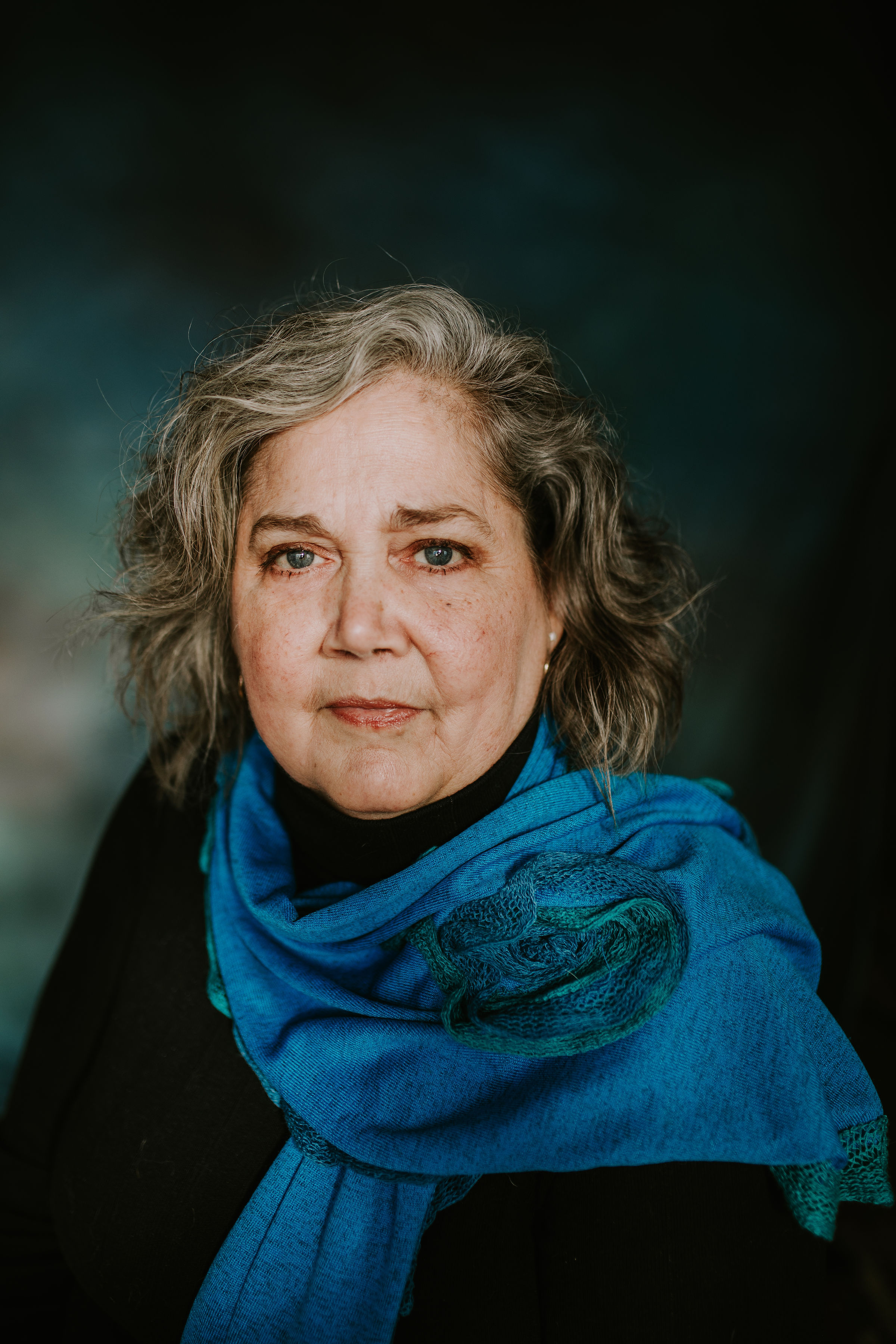The Inspiring Life of Dorothy L. Sayers

Feisty in her personality and controversial in her writing, Dorothy L. Sayers (1893-1957) was an author who published poetry, detective novels, plays, essays, and translations of classic works—all in a Christian context. She was friends with C.S. Lewis and associated with his circle of literary friends, including Charles Williams and J.R.R. Tolkien.

What Did Dorothy L. Sayers Write?
The variety of published works in Sayers’ writing career was wide. She wrote two volumes of poetry after finishing the coursework for her degree in medieval French literature at Sommerville College in Oxford. Her poetry met with considerable controversy for combining Christian imagery with language that some people found irreverent.
After floundering financially as a young, single woman, Sayers earned a living by writing jingles for an advertising company. In light verse, she promoted clients such as Coleman Mustard and Guinness Beer (“My Goodness! My Guinness!”).
Next, Sayers gained fame by publishing a series of eleven popular murder mysteries, which are still in print today. The series features financially independent amateur detective Lord Peter Wimsey. This appealing main character moves through Sayers’ complicated plots and becomes a complicated character as the series progresses. The first volume, Whose Body? opens with the perfect murder mystery setup—a freshly-shaven man found dead in a bathtub:
“The stark, naked body was lying in the tub. Not unusual for a proper bath, but highly irregular for murder—especially with a pair of gold pince-nez deliberately perched before the sightless eyes. What’s more, the face appeared to have been shaved after death. The police assumed that the victim was a prominent financier, but Lord Peter Wimsey, who dabbled in mystery detection as a hobby, knew better. In this, his first murder case, Lord Peter untangles the ghastly mystery of the corpse in the bath.”
Sayers broke with the conventions of the murder mystery genre and received some criticism, including skeptical comments from Agatha Christie, the queen of murder mysteries.
Sayers stopped writing detective novels in 1939 and expanded her writing projects to include Christian-oriented books about creativity (Mind of the Maker) and theology (Creed or Chaos?). She was a lay theologian, an apologist who defended her beliefs in her writing, like her good friend Lewis. Sayers was scholarly in her approach to topics and did all of her own research. For example, she studied the Gospels in their original Greek language for her play, The Man Born to Be King.
The Man Born to Be King dramatized familiar Bible stories of the life of Christ in contemporary language, which included Cockney and American slang. Invented characters were written into the play to meet the conventions of its radio broadcast. This series of Gospel stories barely avoided censorship—English laws then banned theatrical portrayals of Christ. After airing in two million households, the series of 12 radio plays stirred up its audience with charges of blasphemy.
Sayers—who had remained a member of the Church of England while other intellectuals stopped attending the church—stated that the Gospel’s account of Christ was “inherently subversive” and that her script merely revealed the “shocking elements” of Jesus’ life on earth.
The Bishop of Winchester said A Man Born to Be King was the greatest evangelical appeal of the twentieth century. He stated, “Dorothy made Christ's life seem so real that people were forced to reconsider its meaning for themselves.”
Sayers was comfortable with, even embraced criticism of her writing, and always remarked with wit and candor. Dorothy wrote in her essay, “The Dogma is the Drama,” in the April 1938 edition of St. Martin’s Review, that “ . . . the flails of ridicule have been brandished with such energy of late on the threshing floor of controversy that the true seed of the Word has become well-neigh lost amid the whirling of chaff.”
However, she did not like her theologian role and preferred to be known simply as a playwright.
At the end of her life, Dorothy L. Sayers translated The Song of Roland and Dante’s Divine Comedy, academic and spiritual projects. These works are still in print today. A reviewer claimed her translation of Dante was “fearless poetry that used original rhyme scheme and meter.”
What Happened in Dorothy L. Sayers’ Personal Life?
Dorothy L. Sayers had a child out of wedlock in 1924. She kept her son’s identity a secret throughout her life, letting John Anthony be raised as a foster child by a cousin. Sayers unofficially adopted John Anthony when he was 10 and paid for his boarding school education. Some of Sayers’ biographers believe she turned down a doctorate in divinity from the Archbishop of Canterbury to protect her son’s identity.
A key factor in her choice not to officially adopt John Anthony was her marriage to Captain Oswald Atherton “Mac” Fleming in 1926. Fleming was a divorced World War I veteran whose war experience eventually led to poor health and volatile behavior. He was also a heavy drinker. The couple remained married until Fleming’s death in 1950.
A more positive relationship was Dorothy L. Sayers’ friendship with Lewis. They met after they had established themselves as Christian authors. They were fans of each other’s writing after Lewis published The Screwtape Letters in 1942, and Sayers wrote her Lord Wimsey murder mysteries and The Man Born to Be a King. Though others called Sayers “crusty” and “brash,” Lewis once described her as “delightfully ogreish.”
Lewis, J.R.R. Tolkien, and about 15 other writers in Oxford formed a literary circle called the Inklings in 1933. Some members, like Charles Williams, wrote mysteries during the genre’s popularity in the 1920s and 1930s. The Inklings also wrote children’s books, newspaper articles, academic essays, epic fantasies, poems, and plays. Many scholars argue that Sayers didn’t technically attend the correct events to qualify as an Inkling. Still, the line between Inklings and non-Inklings isn’t always easy to tell—some of Lewis’ closest friends didn’t attend Inklings meetings but clearly impacted his writing. Sayers was the closest woman to the group and certainly embodied their spirit: “A circle of instigators, almost of incendiaries, meeting to urge one another on in the task of redirecting the whole current of contemporary art and life,” as Inkling John Wain put it.
The Inklings and their friends strove to combine scholarship with imagination. Lewis’ The Chronicles of Narnia series and Tolkien’s Lord of the Rings trilogy attest to the group’s goal of writing fantastic fiction with a “tendency toward Christianity,” as Lewis phrased it. In The Fellowship: The Literary Lives of the Inklings, Philip Zaleski and Carol Zaleski write that “Their great hope was to restore Western culture to its religious roots, to unleash the powers of the imagination, to re-enchant the world through Christian faith and pagan beauty.”

10 Inspiring Nonfiction Quotes by Dorothy L. Sayers
1. “Please realize that words are not just ‘talky-talk’—they are real and vital; they can change the face of the world. They are a form of action—‘in the beginning was the Word . . . by Whom all things were made.’” — from “A Note on Creative Reading” in Begin Here
2. “Some prefer the intellectual cheerfulness of the detective story. . . the tale must be about dead bodies or very wicked people, preferable both, before the Tired Business Man can feel really happy and at peace with the world.” — from Great Short Stories of Detection, Mystery, and Horror
3.“The only Christian work is good work well done… whether it is church embroidery or sewage farming.” — from “Why Work?” in Letters to the Diminished Church
4. “It was left for the present age to show Covetousness with glamour on a big scale, and to give it a title which it could carry like a flag. It occurred to somebody to call it Enterprise. From the moment of that happy inspiration, Covetousness has gone forward and never looked back.”—from “The Other Six Deadly Sins.”
5. “No: forgiveness is a difficult matter, and no man living is wholly innocent or wholly guilty.” From “Forgiveness and the Enemy” in Unpopular Opinions
6. “Because we do not recognize pride when we see it, we stand aghast to see the havoc wrought by the triumphs of human idealism. We meant so well, we thought we were succeeding — and look what has come of our efforts!” — from “The Other Six Deadly Sins.”
7. “Somehow or another, and with the best of intentions, we have shown the world the typical Christian in the likeness of a crashing and rather ill-natured bore—and this in the Name of One Who assuredly never bored a soul in those thirty-three years during which He passed through the world like a flame.” — from “The Dogma is in the Drama.”
8. “You must be precious to yourself because you are precious to God, remembering that in His sight your neighbour is equally precious, and precious in the same way. You must not do damage to your own soul, or your neighbour’s: you must respect and take all reasonable care of your body and his, because it is God’s property, and should not be treated with careless irreverence.” — from a 1948 letter to Patricia Flavel in Letters, Vol. 3
9. “The Christian faith is the most exciting drama that ever staggered the imagination of man...and the dogma is the drama.” — from “The Dogma is in the Drama.”
It seems appropriate to let Dorothy L. Sayers have the last word. Here is her wish for the future, as listed in a letter to Val Gielgud, the producer of The Man Born to be King:
10. “When we all go to heaven, all I ask is that we shall be given some interesting job and allowed to get on with it. No management; no box-office; no dramatic critics; and an audience of cheerful angels who don’t mind laughing.” — January 13, 1942 letter, in Letters, Vol. 2
Sources and Further Reading:
All book quotes are taken from the following sources:
Great Short Stories of Detection, Mystery, and Horror, Third Series. Edited by Dorothy L. Sayers. London: Victor Gollancz, 1934.
Letters to the Diminished Church. Thomas Nelson, 2004.
The Letters of Dorothy L. Sayers Volume 2: 1937-1943: From Novelist to Playwright. Edited by Barbara Reynolds. Cambridge: Dorothy L. Sayers Society, 1997.
The Letters of Dorothy L. Sayers, Volume 3, 1944-1950: A Noble Daring. Edited by Barbara Reynolds. Cambridge: Dorothy L. Sayers Society, 1998.
Cover Photo Credit: Hulton Archive / Getty Images

Originally published July 12, 2022.




